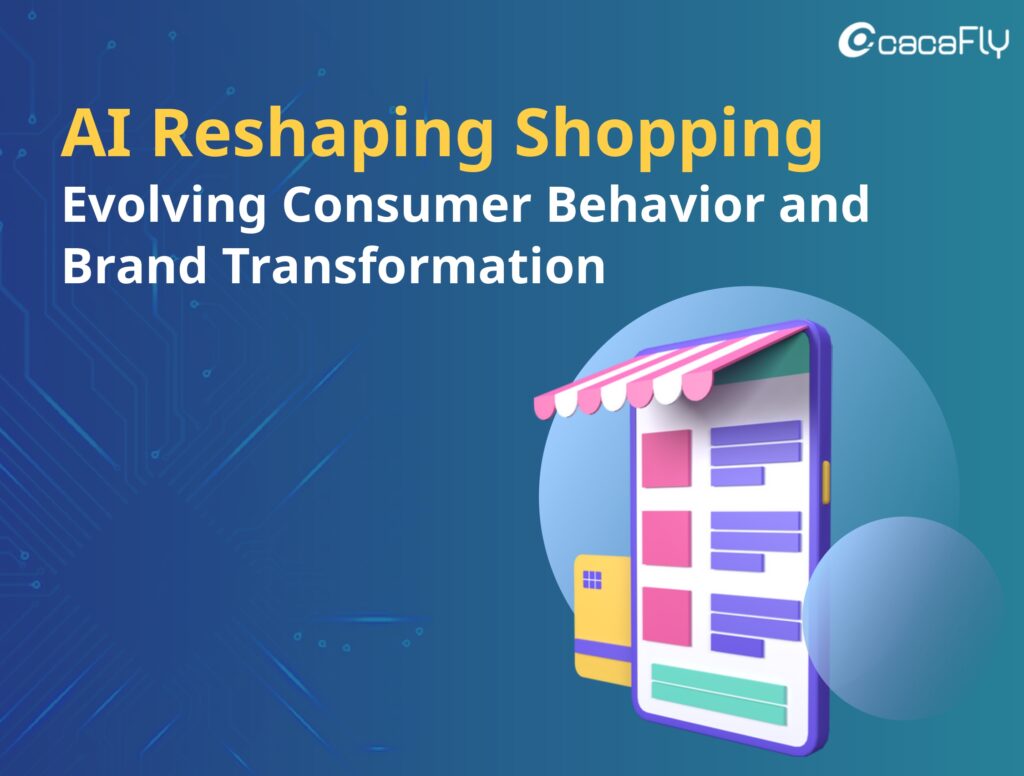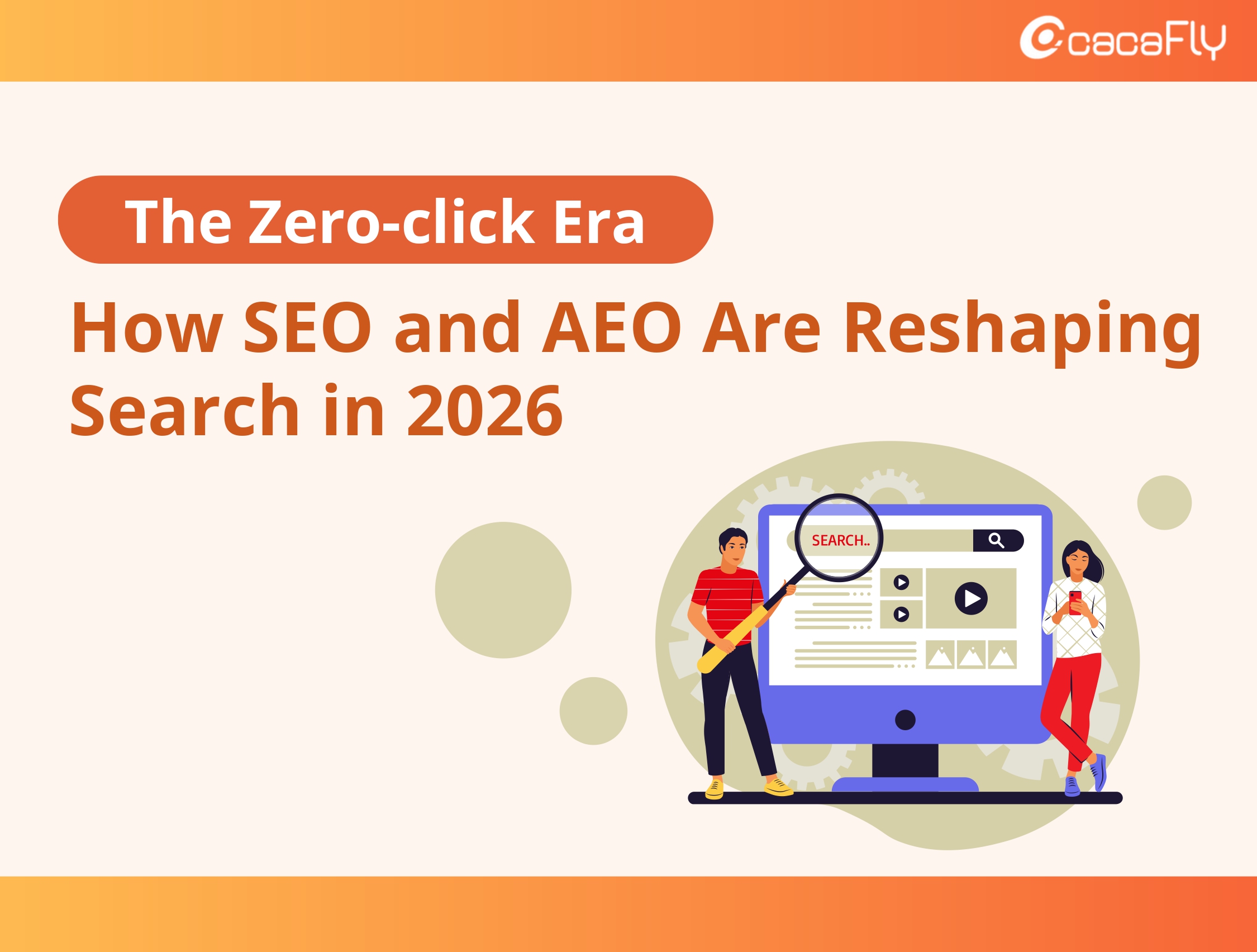As AI enters daily life, shopping behavior is rapidly transforming. In the past, consumers relied on search engines to find products, compare prices page by page, read reviews, and finally make a decision.
Today, this process is being rewritten. Consumers increasingly depend on AI to ask questions, get recommendations, and even complete transactions directly. This shift is not just a technological upgrade but a redefinition of consumer logic. Exploration is becoming more direct, decisions more efficient, and shopping experiences more personalized.
Smarter Shopping in the Age of Efficiency
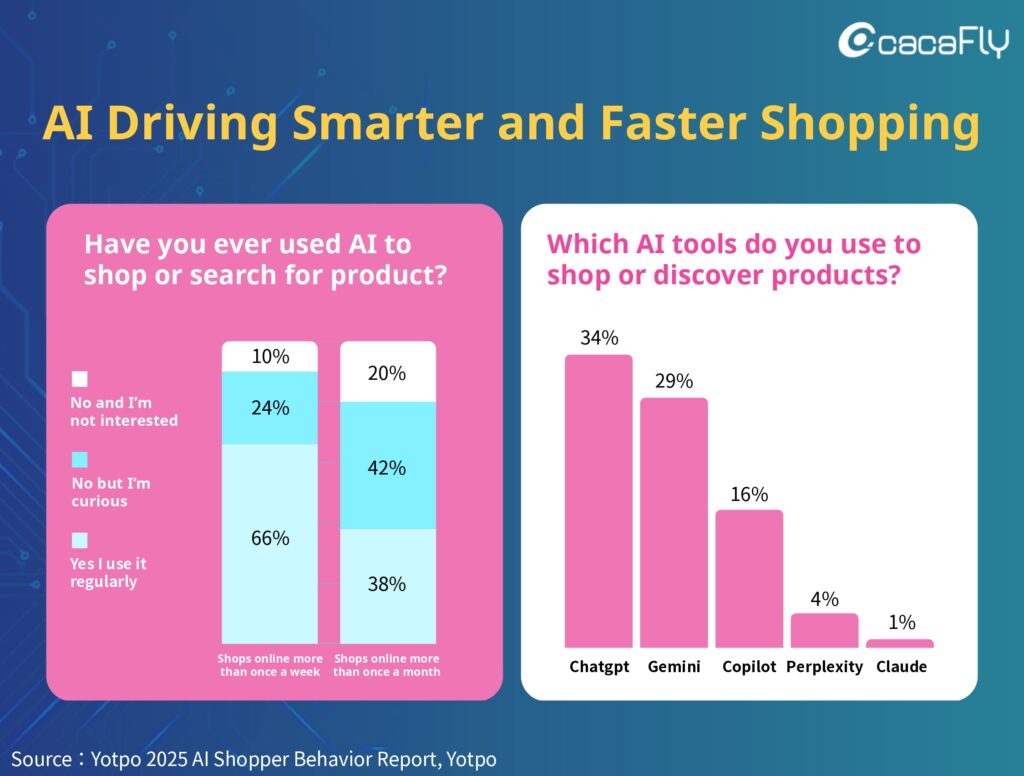
For frequent shoppers, AI is already reshaping behaviors. Research shows:
- 66% of consumers who shop online more than once a week use AI assistants like ChatGPT to support decision-making.
- 34% of heavy AI users rely directly on ChatGPT for product exploration.
With AI, shopping is no longer passive browsing but a smarter and more efficient choice, such as:
- Comprehensive comparison: AI aligns similar products side by side, breaking down features, pros and cons to quickly identify the best value.
- Personalized recommendations: Finds the most suitable options based on budget and needs.
- Smart shopping lists: Automatically organizes purchase needs into categories to prevent omissions.
- Health and wellness: Helps select the right supplements, diets or skincare products.
- Gift inspiration: Provides thoughtful suggestions to help find the perfect idea.
Four Key Trends Shaping the AI Shopping Era
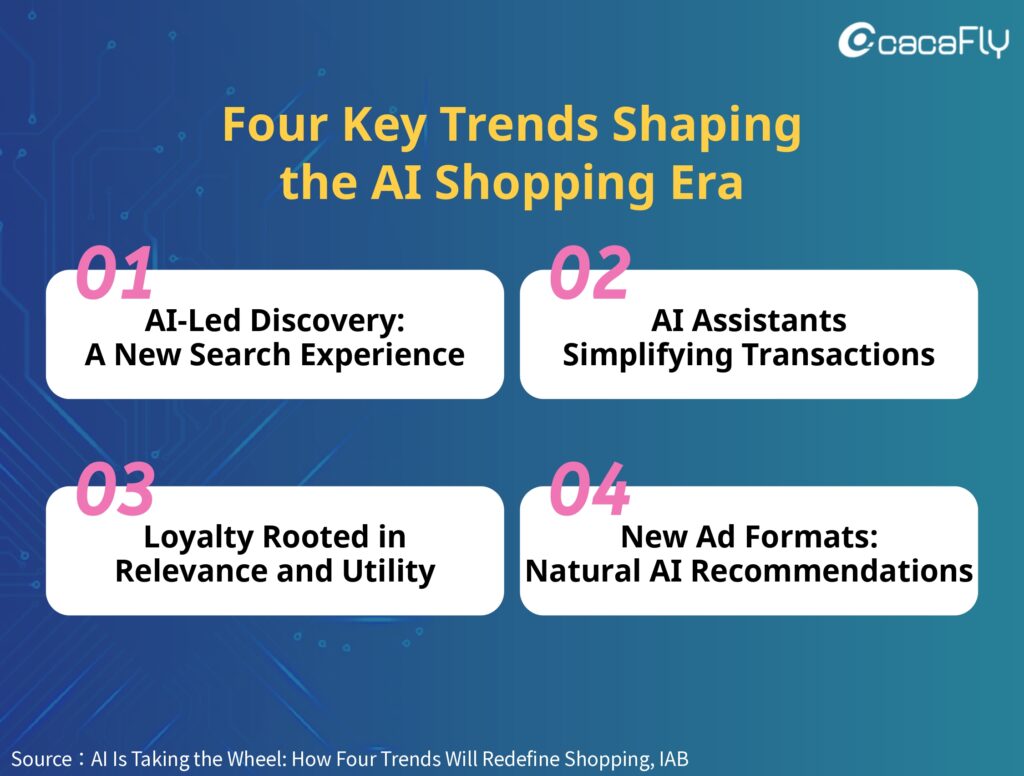
AI is redefining the shopping journey from discovery and comparison to checkout. To keep pace, brands must recognize four critical trends.
1. AI-Led Discovery: A New Search Experience
For decades, search engines were the main way consumers found products. Now, AI is offering an alternative. Tools like ChatGPT allow consumers to simply describe their needs and instantly receive personalized recommendations, eliminating the need to sift through endless results.
Discussions on Reddit reveal the growing reliance on AI, as it continuously refines suggestions based on preferences, past behavior and even purchase histories from shopping platforms.
2. AI Assistants Simplifying Transactions
Visa and Mastercard are developing AI-powered payment systems that enable transactions to be completed automatically under preset conditions. PayPal has also announced plans for an AI-driven financial operating system. Whether buying daily essentials or booking trips, consumers will only need to provide minimal input to complete transactions quickly.
For brands, the traditional sales funnel is being rewritten. The decisive moment is no longer just the checkout page but the instant an AI makes a recommendation.
3. Loyalty Rooted in Relevance and Utility
AI will not replace brand building, but it does redefine the target audience: not only consumers but also the AI assistants filtering information for them. Brands must deliver clean, structured data including pricing, inventory, attributes and reviews through APIs or product feeds for AI to process easily.
When data is complete, AI can provide practical advice such as restock reminders or product recommendations. In this environment, loyalty is less about emotion and more about utility.
4. New Advertising Formats: Natural AI Recommendations
As AI influences more purchase decisions, monetization models are also evolving. Products no longer only appear in banners or top results but can surface as contextual suggestions within conversations.
Perplexity is already testing new formats like sponsored follow-ups and contextual media. While similar to traditional ads, these placements feel more natural and useful. Contextual recommendations are more effective than intrusive ads, creating a new, personalized touchpoint closer to conversion.
Adapting to the New Consumer Logic
AI is now a critical part of the consumer journey. Brands must learn to engage not only with consumers but also with AI assistants. This transformation goes beyond technical adjustments to fundamentally reshape marketing and business strategies.
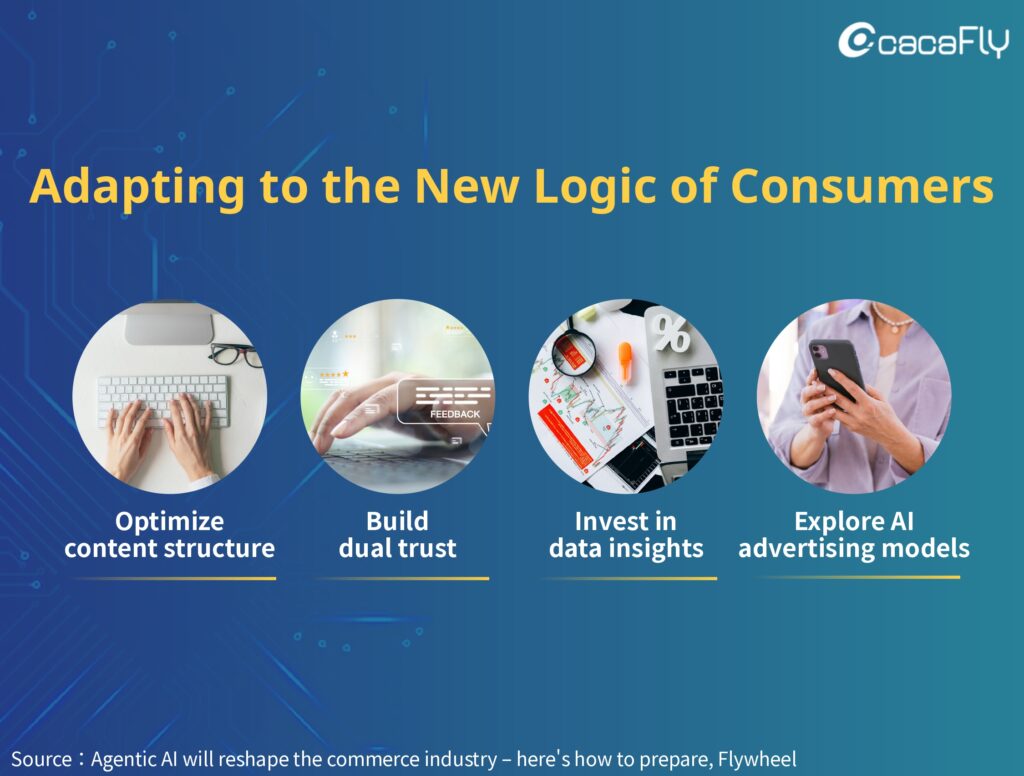
1. Optimize content structure
Product information must be clear and structured to be understood and ranked correctly by AI. This includes completing product attributes, categories and metadata, ensuring accurate image tagging, and delivering information through schema, APIs or product feeds.
2. Build dual trust
Trust must be earned from both consumers and AI. Beyond transparency, expert reviews, media coverage and authentic user feedback serve as crucial signals for AI when generating recommendations.
3. Invest in data insights
Data is key to influencing AI-driven recommendations. Brands must gain deeper insights into consumer behavior, for instance by collaborating with retailers and leveraging clean rooms such as AMC for data analysis. This transforms insights into precise marketing strategies.
4. Explore AI advertising models
With new AI ad formats emerging, brands must adapt their media buying strategies and actively explore building AI assistants or partnering with new platforms to maintain competitiveness.
Conclusion
AI has become a central force in driving the shopping journey. It is reshaping how consumers discover products, make decisions and interact with brands. Being understood, recommended and trusted will be the new competitive edge.
Only by continuously refining strategies and ensuring clarity of content, completeness of data and authenticity in communication can brands maintain visibility and build long-term consumer trust in an AI-powered shopping landscape.
Struggling with Brand Development and Marketing?
Reach out to us, and let the professional consultancy team at cacaFly to collaborate with you in creating a brighter future
PM: cacaFly Malaysia Facebook
Email: [email protected]
Mobile: 017-7486433
cacaFly Malaysia is always at the forefront of digital marketing and committed to being the most reliable partner of our clients, priding ourselves in offering premium services with utmost enthusiasm and professionalism. Specializing in serving brand and performance oriented clients, our one-stop digital marketing services ranges from early research, mid-term advertising, MarTech application and creative production to data analysis and strategy optimization, cacaFly Malaysia has assisted countless brands and online merchant improve their performance and expand their businesses. If you need help with digital marketing strategy, ad placements etc., contact us now! PM us on cacaFly Malaysia Facebook or email us at [email protected]
Sources:
AI Is Taking the Wheel: How Four Trends Will Redefine Shopping, IAB
Yotpo 2025 AI Shopper Behavior Report, Yotpo
Agentic AI will reshape the commerce industry – here’s how to prepare, Flywheel

